New Law Could Make Fixing Cars & Trucks Easier for DIYers
Computer maintenance & diagnostics - wrench over a computer keyboard.
In 1998, President Clinton signed into law the Digital Millennium Copyright Act (DMCA), which was designed to prevent online companies from infringing on each other’s technologies, as well as protect software platforms and other forms of digital technology from copying, modification, or bypassing of protection encryption.
One provision in the DMCA is a review every three years, at which point groups can propose changes or exemptions to the rules of the act. During the most recent review, the Electronic Frontier Foundation (EFF), a nonprofit group advocating for civil liberties in the digital world, proposed an exemption that would let people access their automotive computer programs for the purposes of “diagnosis, repair, and modification” of the vehicle.
The proposal received full support from the National Telecommunications and Information Administration, which stated it was a necessary measure to allow consumers to continue the “long-standing practice” of working on their own cars.
Most believe that people should be able to tinker with their cars as they have done for years, be it the engine, transmission, or other vehicle hardware. According to Kit Walsh of the EFF, people need to access their car software so they can do things like “repair, modify, and test the security of their vehicles.”
Is it fair to allow someone to buy a car when they can’t own the software it comes with? When we pay tens of thousands of dollars for a car, shouldn’t we be able to own the entire car and do with it what we wish?
Another issues is being able to repair trucks & tractors without having to go through factory authorized channels. NPR recently reported on a farmer who was having issues his tractor.
The little computer screen lets him know when something is wrong. Unfortunately, Alford isn’t allowed to fix it. John Deere has a digital lock on the software that runs his tractor. And it won’t give him the key.
If something goes wrong with one of his tractors Alford has to take it to an authorized John Deere dealer — the closest one is about 40 miles away — or a John Deere rep has to come visit him. Alford had an issue about a year ago; the tractor belts were loose. He waited a day for the John Deere rep.
“The tech came out and it took him a couple hours to diagnose that there was one small sensor out. And that one small sensor, I think it was a $120 part.”
Truck drivers and trucking companies often face similar issue where proprietary diagnostic tools are necessary to fix even the basic issues. This leads to delays and potential claims for time sensitive shipments and could even explain why your car shipment is delayed.
Hackers and computer experts have been sharing DIY car hacking videos and instructions practically since the systems premiered, but it is a practice that is technically illegal, and of course, voids any warranty on the system.
With the new possibility of entry into our vehicle software, the potential for dangerous outside hacking rises. Recently, Charlie Miller, a top engineer at Uber and a former analyst for the National Security Agency, and IOActive researcher Chris Valasek hacked into a Jeep Cherokee that was in motion on the highway. At first they activated inessential systems like the radio, but they were quickly able to access systems like the steering, brakes, and engine.
National Highway Traffic Safety Administration chief Mark Rosekind has voiced increasing concern about the security of vehicle control systems.
The exemptions to the DMCA were granted with certain restrictions, including a 12 month waiting period before they will be put into effect. Additionally, specific systems in the vehicle will still be protected, and people will still be held accountable for any illegal tinkering, such as making changes that violate the Department of Transportation or Environmental Protection Agency laws.

